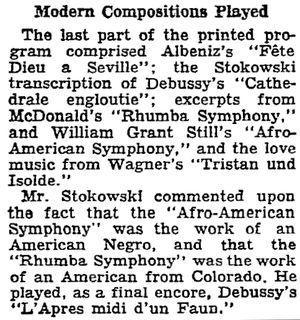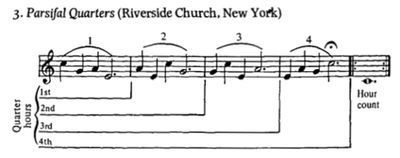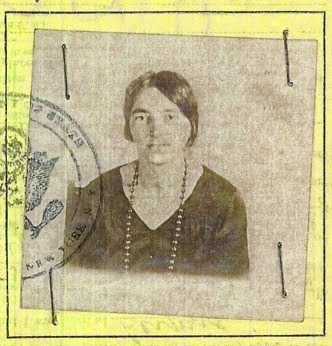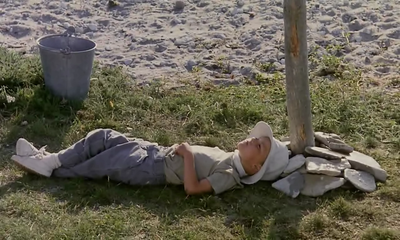Alex Ross's Blog, page 141
May 11, 2014
There was only one Stokowski
Musical mysteries of the Upper West Side
A year ago, I perpetrated an online piece entitled "A Walking Tour of Wagner's New York," tracing a curious itinerary in a city that Wagner himself never saw. I hadn't imagined anyone following in my eccentric footsteps, but Amelia Lester, the editor of the Goings On About Town section of the magazine, had the idea of concocting a walkable tour, as part of a series of New York audio guides that can be found on the Goings On smartphone and tablet app. Eventually, we came up with an excursion called Musical Mysteries of the Upper West Side, embracing not only the Parsifal bells of Riverside Church and the vaguely Wagnerian ambience of the Cathedral of St. John the Divine but also the mysterious world of Nicholas Roerich, noted for his affiliations with figures as various as Stravinsky and Henry Wallace. The tour begins at the Roerich cornerstone, at West 103rd and Riverside Drive, and ends at Riverside Church, where, alas, Frederick C. Mayer's Parsifal sequence is still being played in the wrong order. I hope it makes for a diverting couple of hours. Many thanks to Owen Agnew for crafting a narrative from my slightly demented ramblings.
May 10, 2014
New photos of Johanna Beyer
Amy Beal, researching a book about the pioneering American modernist Johanna Beyer, has uncovered Beyer's passport applications. As Beal points out, the photos give a warmer picture of a supposedly forbidding figure. More on Beyer here.
A Durkó moment
On my trip to Budapest in January, I got to hear a rare revival of Zsolt Durkó's 1972 oratorio Halotti beszéd, or Burial Prayer. The performance took place under the auspices of the Mini-Festival at the Palace of Arts; Mátyás Antal led the MÁV Symphony and the Hungarian National Choir. At one time, in the seventies, Durkó seemed poised for wider renown; Burial Prayer won acclaim after a BBC performance that the tireless Bálint András Varga helped to bring about. Then, as Varga comments in his recent book From Boulanger to Stockhausen, Durkó "disappeared from the international scene almost without a trace," along with such contemporaries as Sándor Balassa and András Szőllősy. This is a pity: Burial Prayer, setting the oldest extant text in the Magyar language, is a substantial, powerful work. It's strongly reminiscent of Ligeti and Lutosławski in places, but the finely calibrated contrapuntal writing and the juxtapositions of complex textures and chantlike recitation show a distinctive personality. The ending, in which the tenor whisper-sings "Kyrie eleison" over a cloudlike chorus and tremolo double basses, is breathtaking. Admittedly, it's hard to imagine performances abroad: as the composer Gyula Fekete pointed out to me, even Hungarians have difficulty with the medieval text. But Durkó is certainly worth a second look. In my library is a 1996 Hungaroton CD of his music, pairing Burial Prayer with excerpts from the sprawling, rhapsodic 1989-91 piano cycle The History of the Spheres.
Appearance
On Wednesday, May 14th, I'll be in Winnipeg, conversing with Bill Richardson at a Winnipeg Arts Council event.
May 9, 2014
Nothing's Going to Happen
May 8, 2014
Tenth-anniversary issue
"I have four razors and a dictaphone."
— Andrey Tarkovsky, 1979
I started blogging ten years ago today, in what seemed a casual act of procrastination. Three thousand three hundred fifty posts later, I'm still at it, however sporadically. I should be offering a thoughtful retrospective, as did Kyle Gann, Tim Rutherford-Johnson, Charles Downey, and Jessica Duchen upon reaching this anniversary, but work is piling up, and so I will simply give ardent thanks to all those who have followed my meanderings over the past decade. Here's a semi-random selection of favorite posts from the archive: Tiny Valhalla, Star-Spangled Wagner, Björk's Favorite Records, Chord of the curse, Ligeti's Third Quartet, Herrliche or herrlichste?, Wikileaks, music, and power, Applause, Schoenberg buys a car, The Popov Discontinuity, Vivaldi in Antarctica, Fanfare for the Royal Wedding, Benchmark and Send, David Raksin, Full fathom nine, For Peter Lieberson, Deep River.
Beethoven's grand-nephew
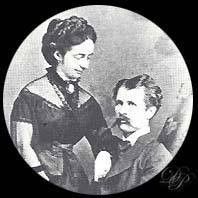 A typically meticulous and revealing post by Michael Lorenz, on the subject of Beethoven's wills, sent me on an extended detour, the endpoint of which was the curious case of Beethoven's grand-nephew, Ludwig van Beethoven, otherwise known as Louis von Hoven. He was the son of Beethoven's beloved nephew, Karl, that unhappy figure who gave the composer no end of worry. Ludwig seems to have been a more energetic and determined character, though somewhat lacking in moral fibre. The most thorough account of his sketchy life can be found in Paul Nettl's article "Beethoven's Grand-Nephew in America," published in 1957 in Music & Letters.
A typically meticulous and revealing post by Michael Lorenz, on the subject of Beethoven's wills, sent me on an extended detour, the endpoint of which was the curious case of Beethoven's grand-nephew, Ludwig van Beethoven, otherwise known as Louis von Hoven. He was the son of Beethoven's beloved nephew, Karl, that unhappy figure who gave the composer no end of worry. Ludwig seems to have been a more energetic and determined character, though somewhat lacking in moral fibre. The most thorough account of his sketchy life can be found in Paul Nettl's article "Beethoven's Grand-Nephew in America," published in 1957 in Music & Letters.
Ludwig was born in Vienna in 1839. In his late teens and early twenties, he was in the employ of King Ludwig II, recommended by none other than Wagner. He perpetrated various frauds, including an escapade in which he passed himself off as the composer's grandson, under the name Baron von Beethoven. Facing a prison sentence, he fled to America in 1871. Stateside, he traveled widely with his wife, Marie, who seems to have been a pianist of considerable ability; for a time, he found work with the Michigan Central Railroad. Having taken the name von Hoven, in order to escape his misdeeds in Munich, he found temporary prosperity as an inventor and as an impresario of various enterprises. According to Nettl, his most successful venture was the Commissionaire Company, a red-cap messenger service on the European model; branches of this business opened in Chicago, New York, and Philadelphia in 1874 and 1875. He also ran a scheme renting wheelchairs to elderly people at what Nettl identifies as the New York World Fair. I wonder whether he means the 1876 Centennial Exposition in Philadelphia, where a "Roll-Chair Company" did business. Searching Internet archives, I found two more traces. One is a taxi-meter patent attributed to a Louis von Hoven of Philadelphia; it may be the same man, since von Hoven is known to have been living in Philadelphia at this time.

An item from an 1876 edition of the New York Herald suggests that the messenger service came to a bad end:
In the late 1870s, evidence of von Hoven becomes scarce, but he seems to have returned to Europe for several extended periods. Nettl last glimpses him in 1890, in Paris, where he was said to be ill and destitute. His time and place of death are unknown. He had a son named Karl, who died in a Viennese military hospital in 1917. Thus ended the Beethoven name.
May 7, 2014
Become Ocean on WQXR
As in past years, WQXR's broadcasts of Spring for Music events at Carnegie Hall are being archived at the station's website. You can now hear Christopher Rouse's Requiem, which the New York Philharmonic performed on Monday night, and the Seattle Symphony's program of John Luther Adams, Varèse, and Debussy, which caused a sensation last night. In advance of that event, Adams gave an interview to the Times's Corinna de Fonseca-Wollheim, in which he revealed that he would be not only hearing his Pulitzer Prize-winning work Become Ocean for the first time — he missed the premiere because of eye surgery — but making his first visit to the main auditorium of Carnegie. Of his recent scores, he said, “I like to be on that razor’s edge between beauty and terror. What in the 19th century they called the sublime. That element of fear just makes it more beautiful.”
Carnegie's mellow, resonance-rich space brought out the Wagnerian aspect of Become Ocean, favoring sonorities of strings and brass. From the orchestra seats, I found that much of the score's glittering detail was lost: for example, one could seldom hear the epic piano part (Kimberly Russ was the superhero of the Seattle visit, playing also in Déserts and at the orchestra's Poisson Rouge event), and the most delicate percussion effects disappeared as well. On the broadcast, WQXR's microphones compensate somewhat. What will presumably be the definitive document of the work will appear next fall, when Cantaloupe Records releases a studio recording that the Seattle made in Benaroya Hall last November.
Update: Reviews by David Allen, Justin Davidson, Tony Tommasini, George Grella, Martin Bernheimer.
May 6, 2014
Alex Ross's Blog
- Alex Ross's profile
- 425 followers


